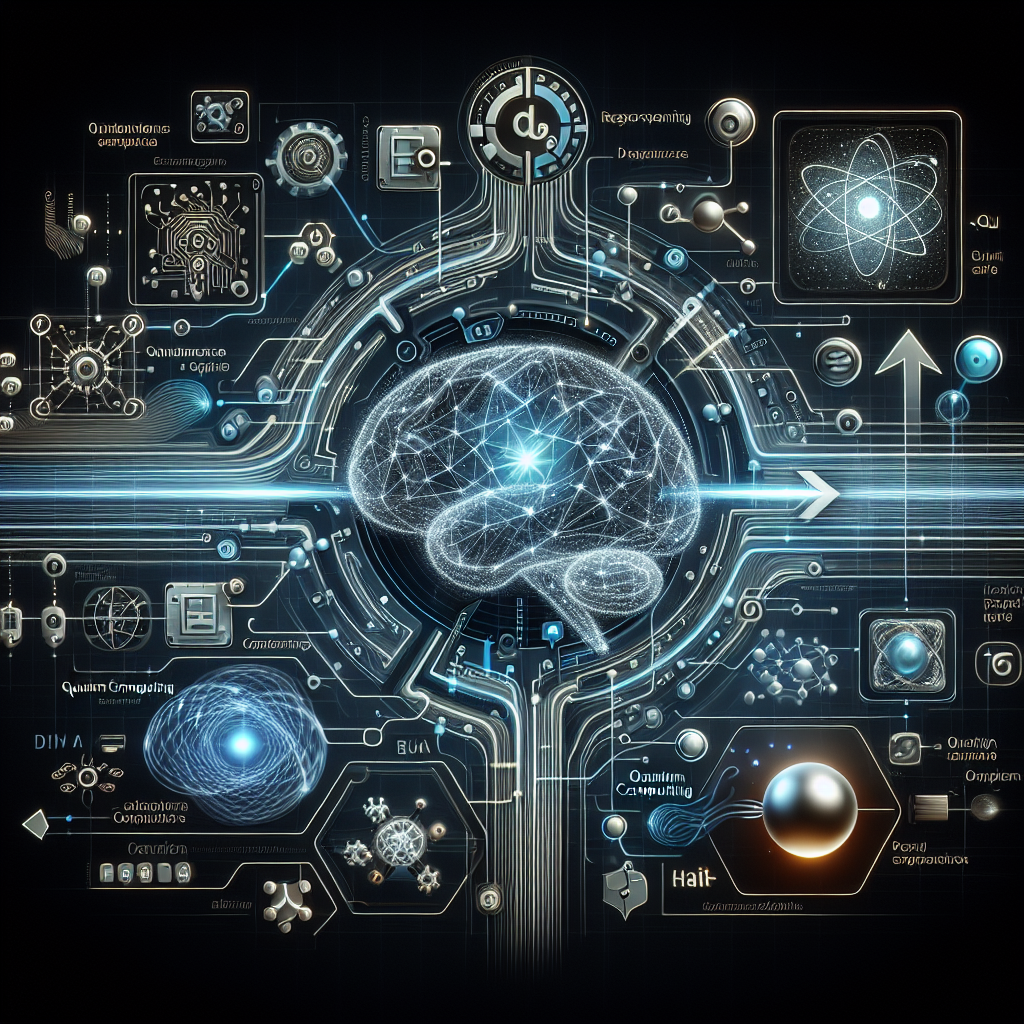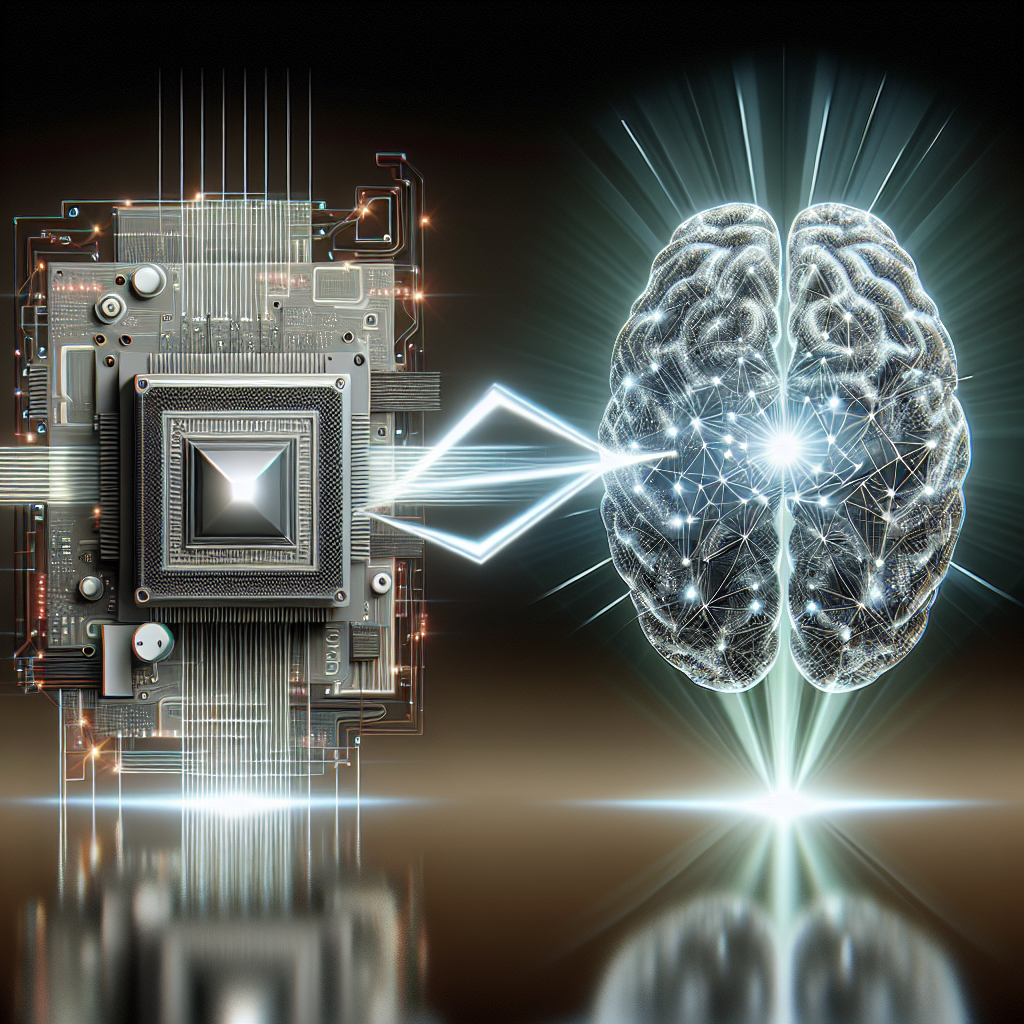In the rapidly evolving world of technology, artificial intelligence (AI) has established itself as a cornerstone of innovation, driving advancements across myriad industries, from healthcare to finance. Parallel to the rise of AI, another frontier technology, quantum computing, has been making significant strides. This fusion of AI with quantum computing promises to usher in a revolutionary era where machines not only mimic human intelligence but do so with unprecedented speed and efficiency.
This blog delves into the intersection of AI and quantum computing, aiming to provide a comprehensive exploration of how quantum-enhanced algorithms could significantly boost the responsiveness and processing capabilities of AI systems. We will explore the fundamental concepts of quantum computing, how it differs from classical computing, and why it is a game-changer for AI responsiveness. Additionally, this blog will discuss real-world applications and the potential benefits of this synergy, providing you with insights into how businesses and societies could transform with these advanced technologies.
As we navigate through these topics, the intricate dance between quantum bits and AI models will not just be a subject of theoretical interest but a preview of the future. So, let's begin this journey into understanding how quantum computing could potentially turbocharge AI, making it more powerful than ever before.
Unlocking the Potential of AI with Quantum Computing
As technology advances, the fusion of artificial intelligence (AI) and quantum computing is prompting a significant revolution in computational capacities. This synergy is not just enhancing the operations of AI but is also setting new benchmarks in terms of speed, efficiency, and problem-solving capabilities. In this article, we delve into how quantum-enhanced algorithms are catalyzing a transformative shift in AI responsiveness and why this stands out amidst other technological advancements.
Key Features of Quantum-Enhanced AI
The combination of AI and quantum computing brings forward unique features that are set to redefine the landscape of technology:
- Parallelism: Quantum computers operate on qubits that can exist simultaneously in multiple states (thanks to superposition), unlike binary bits in classical computers. This allows for executing multiple operations simultaneously, boosting AI algorithms' processing power.
- Interference: Quantum algorithms use the principle of interference to amplify correct pathways and cancel out paths leading to wrong answers, enhancing the precision of AI applications.
- Entanglement: A unique property where the state of one (quantum) particle cannot be described independently of the state of another, allowing instant correlation between qubits no matter the distance. This feature is harnessed in quantum AI to create complex, interconnected networks for more integrated and intelligent systems.
Benefits of Quantum AI Over Classical AI
Traditional AI systems are powerful, yet they face substantial speed and scalability challenges when handling large and complex datasets. Quantum AI transcends these limitations through:
- Speed: Quantum computers can process vast and complex datasets much faster than traditional computers. This drastically shortens AI training times and enhances real-time data processing capabilities.
- Scalability: As problems increase in complexity, classical computers require exponentially more resources to cope. Quantum computers handle these escalations more gracefully, improving the scalability of AI systems.
- Diverse Data Handling: Quantum AI can effectively process and analyze different forms of data, including unstructured data, which is typically challenging for classical AI systems.
Comparison with Classical AI Technologies
When compared to standard AI technologies, quantum-enhanced AI stands out most prominently in the following three aspects:
1. Scalability
AI tasks, such as parsing large natural language models or simulating complex biochemical reactions, often outstrip the processing capabilities of even the most advanced classical supercomputers. Quantum computers, leveraging their intrinsic parallel nature and superior number-handling abilities, scale more efficiently as task difficulty increases.
2. Security
Quantum computing can potentially unlock new frontiers in cybersecurity. Quantum algorithms, like Quantum Key Distribution (QKD), offer a more secure way of data encryption, thus providing an additional layer of security to AI-driven processes.
3. Cost-effectiveness
Though deploying quantum AI requires significant initial investment, its superior processing speed and efficiency result in long-term savings by reducing operational costs and saving time. Moreover, quantum AI systems promise higher accuracy and reduced error rates, further driving down the cost associated with data reprocessing and corrections typically observed in classical AI operations.
Recent Developments and Data
| Year | Development | Impact |
|---|---|---|
| 2021 | Introduction of error-corrected quantum chips | Reduces error rates, promising more reliable quantum AI operations |
| 2022 | Expansion of quantum cloud services by major IT firms | Provides easier access to quantum AI for businesses, boosting adoption rates |
| 2022 | Development of quantum algorithms for drug discovery | Accelerates the prediction and synthesis of new pharmaceuticals |

Cost-Benefit Analysis of Quantum AI Implementations
Investing in quantum AI technology, despite its high initial costs, offers considerable long-term benefits. Improved efficiency and faster processing directly contribute to cost reduction in data-driven industries. Furthermore, the adoption of quantum AI can significantly enhance the accuracy of predictive models in various sectors, including finance, healthcare, and logistics, translating into better decision-making and profitability.
In conclusion, the integration of AI with quantum computing not only enhances the responsiveness of AI systems but also introduces significant improvements in scalability, security, and overall cost-effectiveness. As we continue to witness groundbreaking advancements in this field, the potential for quantum AI seems limitless, heralding a new era of technological excellence and innovation.

The convergence of AI and quantum computing is poised to redefine the landscapes of computation and digital intelligence. As we explore this synergy further, we anticipate witnessing quantum-enhanced algorithms elevating AI responsiveness to unprecedented levels. This revolution will not only fast-track the processing capabilities of AI but will also enhance its efficiency in handling complex, voluminous data sets and performing tasks with greater precision and speed.
As stakeholders in technology, academia, or business sectors, embracing this imminent quantum-powered AI era entails staying informed and proactive. Engaging with current research, participating in quantum computing courses, and experimenting with quantum algorithms are actionable steps that can prepare us for upcoming transformations. Moreover, industries should start evaluating their infrastructure and training their workforce accordingly to leverage the full spectrum of benefits from AI and quantum enhancements.
Looking ahead, the potential of integrating AI with quantum computing is enormous, touching every field from drug discovery to climate modeling. It promises not only to solve problems that are currently intractable but also to uncover new questions we haven’t yet imagined. Thus, the journey into this cutting-edge technology fusion is not just about adaptation but also about pioneering the uncharted territories of the digital future.
Stay tuned to our blog as we continue to provide updates on this exciting topic. Regular posts will keep you informed on the latest developments, breakthroughs, and insights into the fusion of AI with quantum computing. Together, let’s embark on this transformative journey, equipped with knowledge and readiness to innovate.


